YANGON—For the first time in Kachin State’s electoral history, local ethnic parties expect to defeat their rivals from Burmese-majority areas.
The Kachin State People’s Party (KSPP)—a merger of four smaller Kachin parties—will field candidates in all the constituencies in Kachin, going head-to-head against the National League for Democracy (NLD) and the Union Solidarity and Development Party (USDP).
The KSPP has selected candidates who are popular with the Kachin people and expect to undo the NLD’s electoral victory in 2015.
“We expect to win the majority,” said KSPP Chairman Dr. Manan Tuja.
Electoral landscape of Kachin
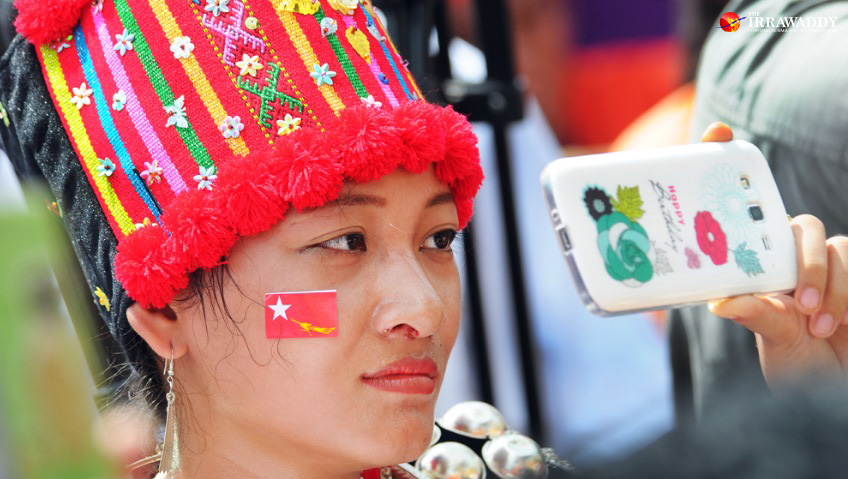
Sixty-seven seats plus four ethnic affairs minister positions are up for grabs in Kachin with more than 400 candidates from 12 political parties competing in the election. More than 1,060,000 people are eligible to cast ballots in Kachin State.
According to secretary U Tun Aung Khaing of the Kachin State Election Sub-commission, 90 voters who are outside Myanmar and more than 7,600 Myanmar military personnel and their relatives have cast early votes.
It will be a three-horse race between the KSPP, the NLD and the USDP, though a total of 12 parties are fielding candidates in the Nov. 8 election.
However, under the 2008 Constitution, even if the KSPP were to win all the seats in Kachin, it would still be impossible for the party to appoint its chief minister. That’s because the party that wins the national majority elects the President, who in turn appoints the chief ministers of the regions and states.
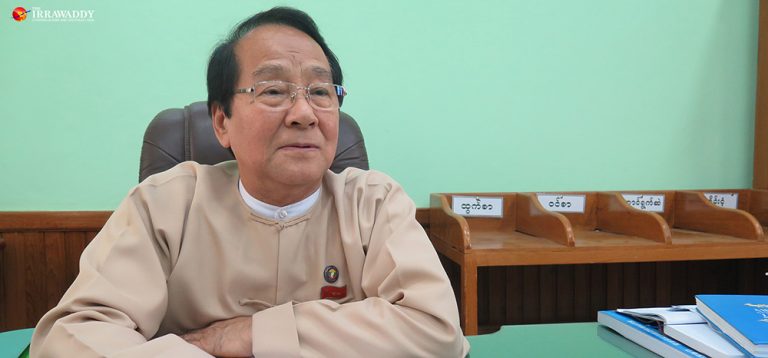
The NLD, which won by a landslide in 2015, has not allied with any ethnic party and NLD leadership has spoken against the idea of a coalition government. So there is little likelihood that local ethnic parties could be a part of local governments if the NLD again manages to win a majority in ethnic-minority states.
“It seems that the NLD thinks they will achieve a landslide victory again. I heard some of the NLD leaders saying so in their interviews. I don’t want to be too critical. But, if a landslide does not happen, they will have to cooperate with ethnic parties, especially in ethnic areas. They will have to form a coalition government,” said Dr. Tuja.
A party needs to win more than 50 percent of the seats in the Union Parliament to form a central government alone. There are 664 seats in the Union Parliament, of which 25 percent are guaranteed for military lawmakers. The remaining 498 seats are elected seats. Of those, 200 seats are from ethnic-majority states, accounting for 30 percent of the total.
“They [NLD leaders] apparently have some level of disregard for ethnic parties. But it depends largely on the outcome of the election. If the results turn out to be different from what was expected, they won’t be able to disregard ethnic parties,” said Dr. Tuja.
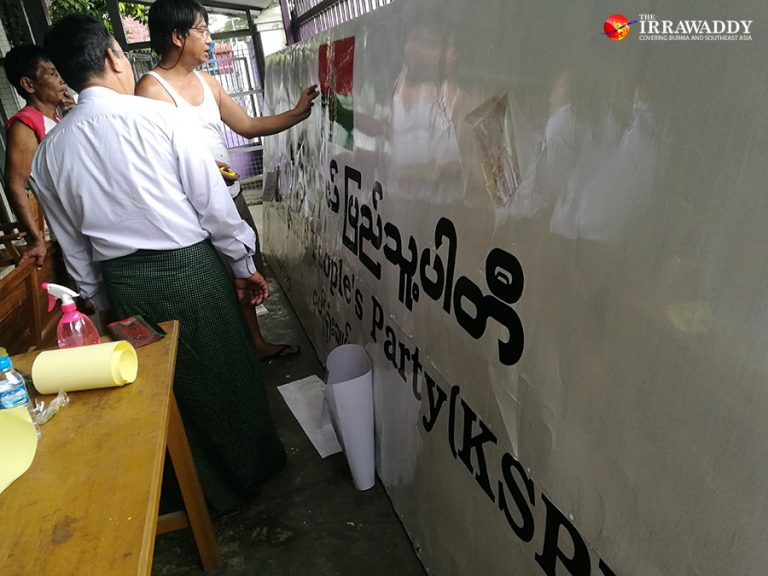
The KSPP believes it will win a majority among Kachin voters because the idea of merging four earlier Kachin parties was presented and supported by Kachin religious leaders, community elders, activists and political leaders.
It is also interesting to note that the KSPP consists of not only ethnic Kachin people but also Shan, Lisu and Bamar who live in Kachin State. And its candidates belong to the main ethnic groups in their respective constituencies.
The KSPP has said it would terminate the controversial Myitsone Dam project if it wins the election, and has said it will make sure the pledges of the Panglong Agreement are realized. It promised it would work to establish a federal democratic union, ensure resource sharing for Kachin people, create job opportunities for Kachin people, promote rule of law and help displaced persons return to their homes, handle land issues, and ensure that a right-to-recall law is passed by the Parliament. The NLD-dominated Parliament has failed to enact such a law.
Due to COVID-19 restrictions, candidates have not been able to campaign freely in Kachin State. The situation is not as bad as Yangon, but more than 70 COVID-19 cases have been reported in Kachin with more than 3,500 people under quarantine.
Candidates are therefore conducting door-to-door campaigns from one village to another, and from one ward to another, keeping in line with the guidance of the Union Election Commission limiting campaign events to fewer than 50 people.
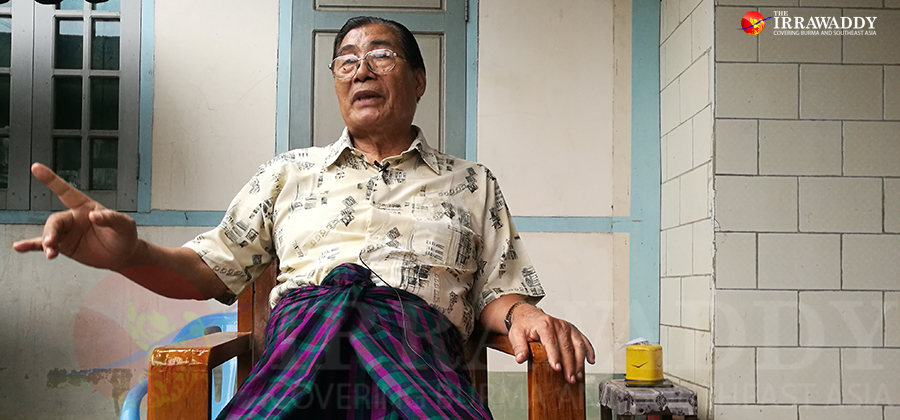
U Kyaw Oo, the secretary of the NLD chapter in Myitkyina, said, “The challenge is, we can’t go about our campaigning freely. And since we can’t campaign in a large number of vehicles, it is less exciting. But it’s not just the NLD. All of the parties are facing this. We have to put up with it.”
Despite those limits on campaigning, the NLD expects to win in 15 out of 18 townships in Kachin State, said U Kyaw Oo, adding that he does not think other parties pose a strong challenge to the NLD.
Who’s who in Kachin politics for 2020 election
The NLD candidate in Constituency 1 of Myitkyina is Kachin State Chief Minister Dr. Khet Aung. He has to compete with rivals from nine parties.
Upper House Constituency 11 is also an interesting seat. Six parties have fielded candidates there, but it is expected to be a tightly contested race between N’htung Hka Naw San of the NLD, Daw Dwe Bu of the KSPP, and Hi Hu Dwai of the USDP, all of whom have good public standing and enjoy popularity with voters.
Among those from the NLD and the KSPP who will contest a Lower House seat representing Myitkyina are two young women who are political newcomers.
The NLD candidate is K Roi Awng, and the KSPP candidate is Seng Nu Pan, an activist working on the issue of Kachin displaced persons.
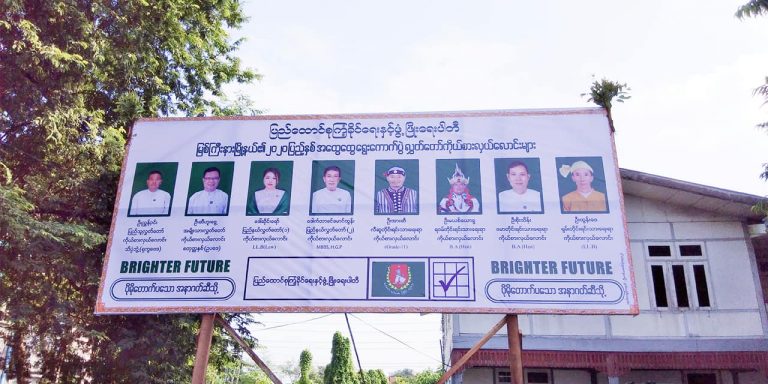
In the Kachin State capital Myitkyina, USDP candidate U Nyunt Win won the second largest number of votes behind the NLD in the 2015 election. He received most of the early votes cast by Myanmar military personnel.
It will be a tight race in Waingmaw Constituency 2, where current Kachin State municipal affairs minister Nawli of the NLD will compete with young Kachin lawyer and activist Lum Zawng of the KSPP.
Thirteen candidates are competing in Waingmaw Constituency 1. Among them is an independent candidate, activist lawyer Gannes, who is involved in resolving land issues in Kachin.
KSPP chair Dr. Tuja is running in Injanyang Constituency 1, where he enjoys strong popularity. The USDP and the NLD did not win in previous elections there.
Incumbent lawmaker Ja Seng Hkawng is running as an independent candidate in Injanyang Constituency 2, where she enjoys strong support. She has been actively engaged in a variety of issues, including women’s issues, the fate of internally displaced persons, and concerns about Chinese investment in banana plantations in Kachin.
Small parties with strong local support
In addition to strong parties like the USDP, the NLD and the KSPP, there are also small parties that enjoy strong local support in their respective regions.
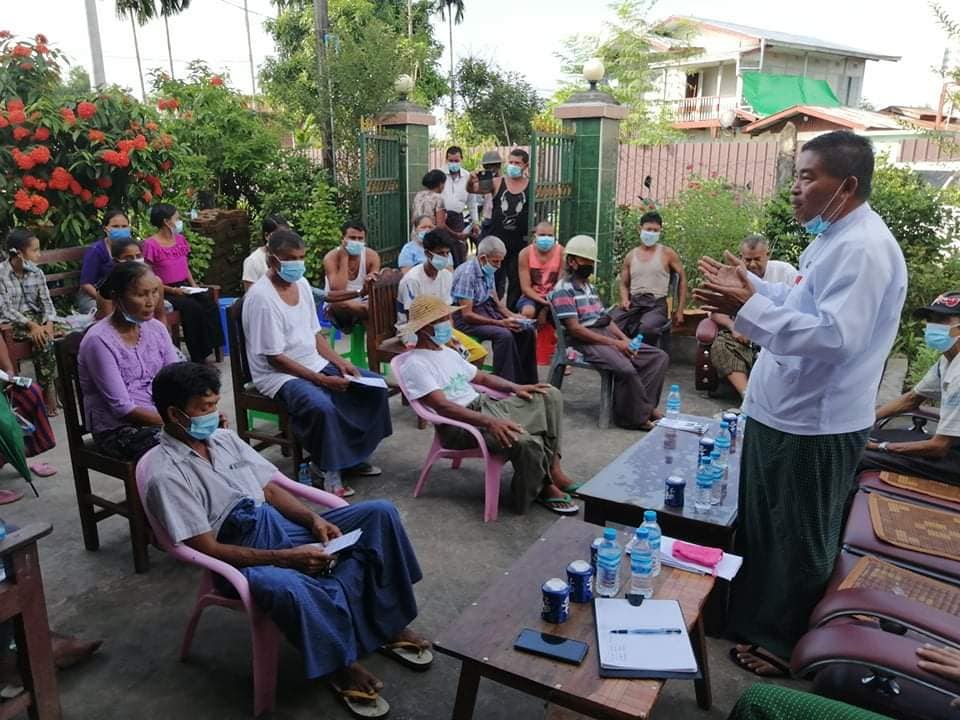
The Lisu National Development Party (LNDP), which secured two seats each in both the Lower House and the Kachin State parliament in the 2015 general election, will compete in Putao, Machanbaw, Chipwe, Sawlaw, Kawng Lang Phu, Myitkyina, Waingmaw and Tanai townships, where there are large Lisu populations.
LNDP chairman U Shwe Min said the party is not in a position to run in all the constituencies, and has decided to focus on constituencies where it has a chance of winning.
“We are only running in constituencies where we think we can win. We expect to win in 75 or 80 percent of the constituencies where we are competing,” said U Shwe Min.
Zakhung Ting Ying and his son Zakhung Ying Sau are the powerful men in Chipwe, Sawlaw and Waingmaw, which collectively form Kachin State Special Region 1.
Zakhung Ting Ying leads the Kachin Border Guard Force, which was formed out of the New Democratic Army-Kachin (NDA-K) in 2009 when it signed a peace deal with the military.
He is also the patron of the New Democratic Party-Kachin (NDP), which was founded in 2019. His son, Za Hkon Ying Sau, is the party’s vice chair.

The two won elections in 2010 and 2015 in the region.
Zakhung Ting Ying is not running this year, but his party has fielded eight candidates in Chipwe, Sawlaw, Waingmaw and Injanyang townships.
Zakhung Ying Sau is running in Chipwe Constituency 2, where he won in two previous elections. His KSPP rival is Ying Hkaw, who is an environmentalist.
The NDP expects to win 75 percent of the seats it is running for. The NLD, the USDP and the LNDP are also competing in Chipwe. The NLD has never won in Chipwe, but in 2015, the LNDP won the second-largest number of votes after the NDP.
Translated from Burmese by Thet Ko Ko
You may also like these stories:
Myanmar President and Suu Kyi Vote Early in Myanmar’s General Election
Myanmar Election Violence on the Rise as November Vote Nears
US Urges Myanmar to Hold Inclusive Election

















